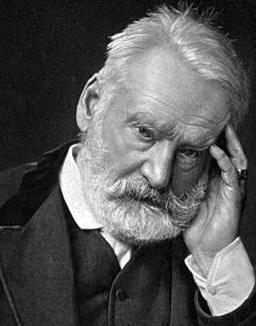Victor Hugo (Victor Marie Hugo)

Victor Marie Hugo (/ˈhjuːɡoʊ/; French: [viktɔʁ maʁi yɡo] ( listen); 26 February 1802 – 22 May 1885) was a French poet, novelist, and dramatist of the Romantic movement. He is considered one of the greatest and best-known French writers. Outside France, his best-known works are the novels Les Misérables, 1862, and The Hunchback of Notre-Dame (French: Notre-Dame de Paris), 1831. In France, Victor Hugo is known primarily for his poetry collections, such as Les Contemplations (The Contemplations) and La Légende des siècles (The Legend of the Ages). He produced more than 4,000 drawings and also campaigned for social causes such as the abolition of capital punishment. Though a committed royalist when he was young, Hugo’s views changed as the decades passed, and he became a passionate supporter of republicanism; his work touches upon most of the political and social issues and the artistic trends of his time. He is buried in the Panthéon in Paris. His legacy has been honoured in many ways, including his portrait being placed on French currency. Victor Hugo’s death from pneumonia on 22 May 1885, at the age of 83, generated intense national mourning. He was not only revered as a towering figure in literature, he was a statesman who shaped the Third Republic and democracy in France. All his life he remained a defender of liberty, equality and fraternity as well as an adamant champion of French culture. In 1877, aged 75, he wrote, “I am not one of these sweet-tempered old men. I am still exasperated and violent. I shout and I feel indignant and I cry. Woe to anyone who harms France! I do declare I will die a fanatic patriot.”
Born
- February, 26, 1802
- Besançon, Doubs, France
Died
- May, 22, 1885
- Paris, France
Cause of Death
- pneumonia
Cemetery
- The Pantheon
- Paris, France



